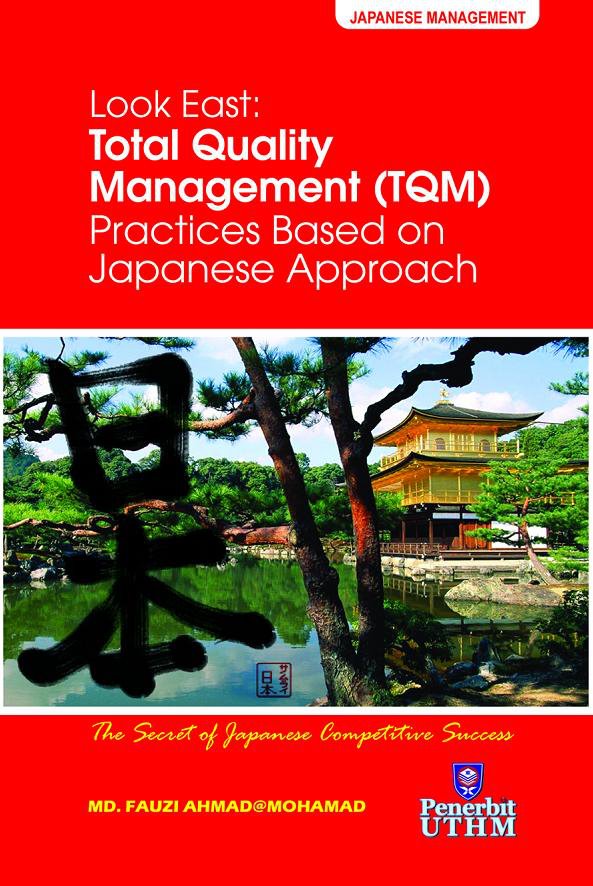Look East : Total Quality Management (TQM) Practices Based on Japanese Approach
 |
Look East : Total Quality Management (TQM) Practices Based on Japanese Approach
• ISBN : 978-967-5457-93-7 • Penulis : Md. Fauzi bin Ahmad @ Mohamad • Jumlah mukasurat : 131ms • Harga : RM20.00 • Tahun : 2012 |
| This book was born based on my 16 years experience since my tertiary education in Japan and working experience in Japanese multinational company. From my valuable experience, I possess deep interest in doing research of Japanese success through TQM approach, which has been proved effective and successful. Through my observation and research; the key success of Japanese companies relies on three elements; continuous cost improvement, quality and delivery to meet customer satisfaction. This can be achieved through Total Quality Management (TQM), which is crucial in ensuring that a company can survive in the continuously growing competition in the global market. Japanese companies are very successful today because of adoption and implementation of TQM principles. This book is about comparing TQM practices between the Japanese and non-Japanese companies. Analysis were made to find significant difference in TQM practices and importance between Japanese and non-Japanese companies. The results showed that there are significant differences in TQM practices. Management leadership, measurement and feedback, product design and education and training showed significant difference in favor of Japanese companies. Furthermore, Japanese companies have high perception on the importance of product development. The top five quality activities implemented are: quality control circle, supplier improvement, Failure Mode Effect Analysis (FMEA), Value Engineering (VE) and quality costing. The book also proposed Quality Improvement Guidelines (QIG) framework for TQM implementation. Management leadership, TQM awareness, standardization, customer satisfaction strategies and kaizen activities are five major parts in the framework. The framework is also supported by Critical Success Factors (CSFs) to ensure the success of TQM implementation. The framework is step by step and can assist companies in meeting customer satisfaction, employee satisfaction and business growth.
" Improving quality while reducing cost is the only option for survival" ~ Masaki Imai ~ |
|
